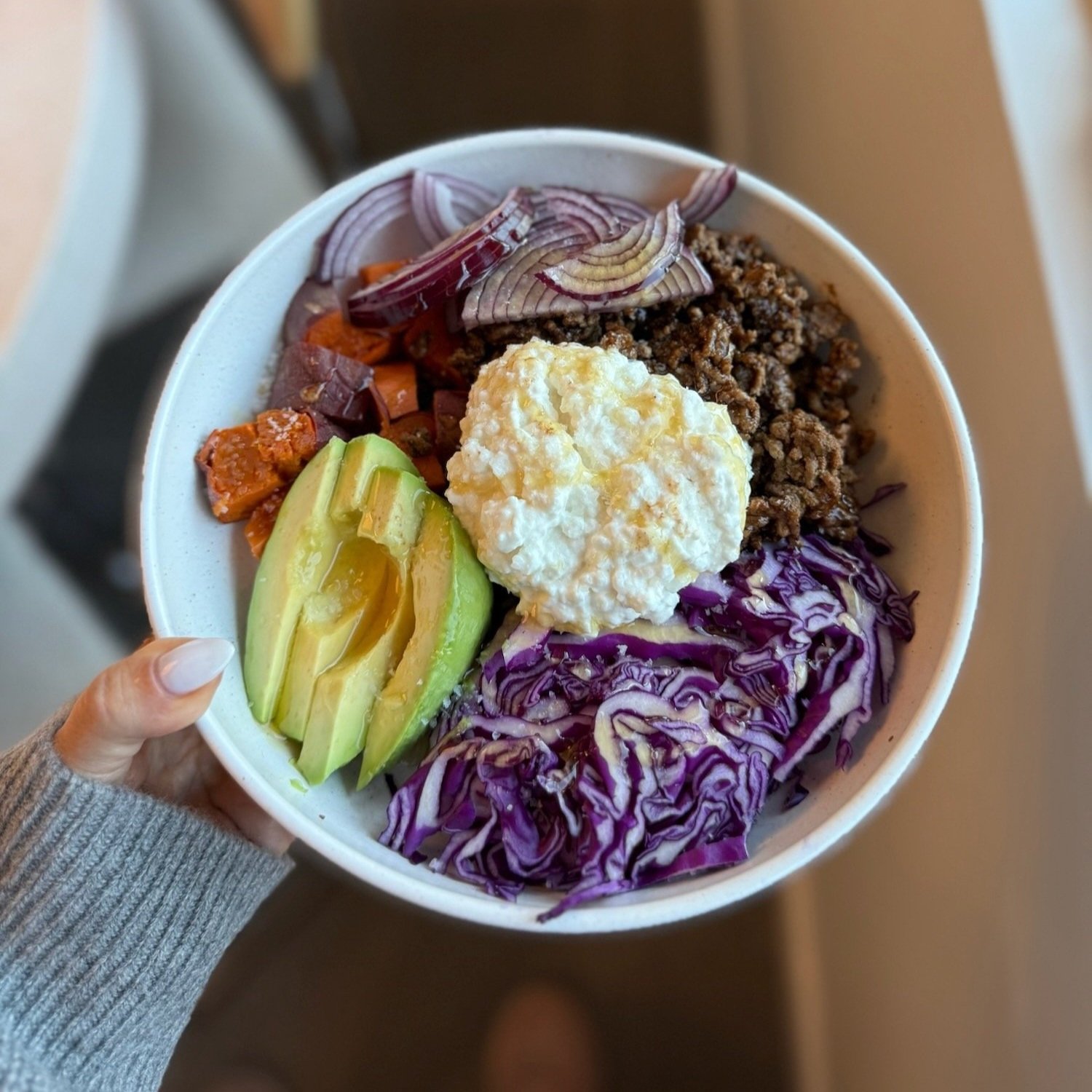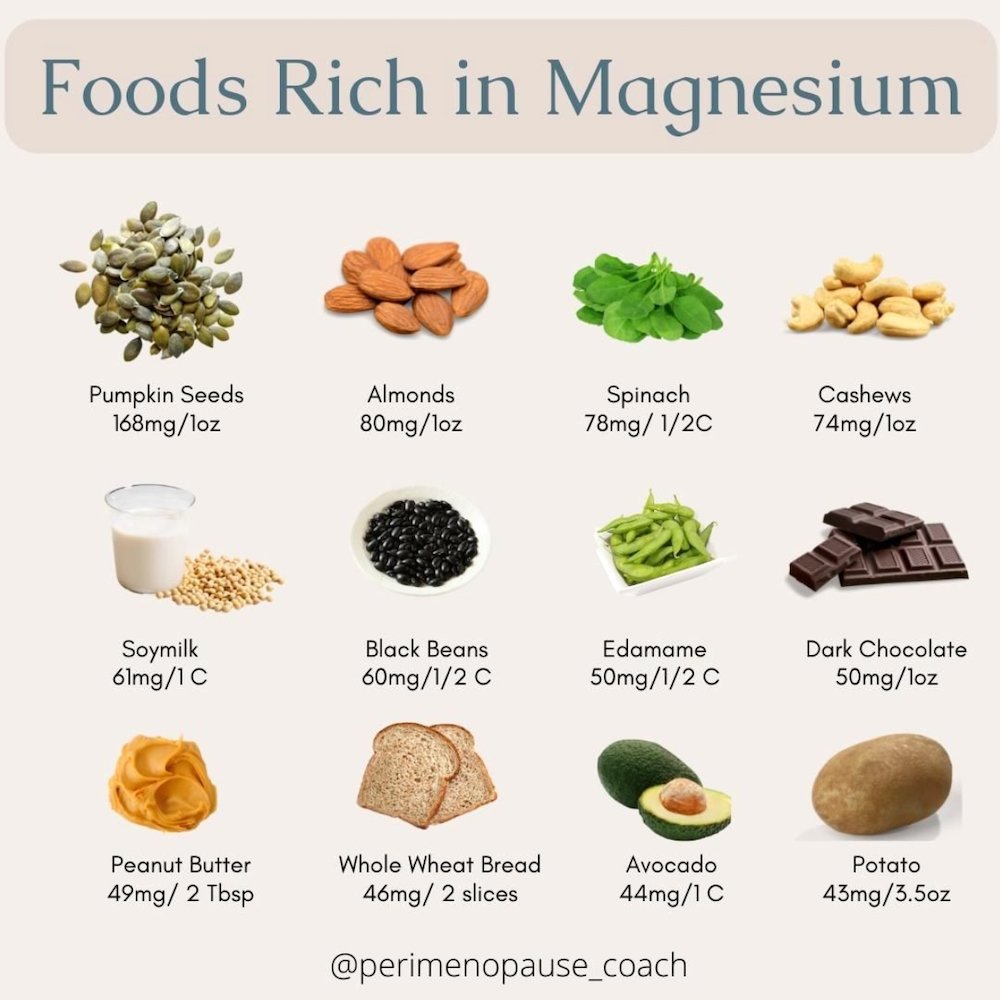This Supplement Is All Over TikTok But Do You Actually Need It?
TikTok might actually have a point here, guys.
by The Candidly Team
TikTok is NOT our first stop for medical advice. But it can certainly get a conversation going. And one recent conversation (fine, call it a trend) is very worthy of a spotlight, particularly for women over 35.
We won’t tease this out: it’s magnesium.
In very short summary, magnesium is a mineral present in every cell in our body that’s needed for hundreds of chemical reactions. According to the National Institutes of Health, magnesium plays an important role in enormously critical things like:
Regulating muscle and nerve function, blood sugar levels, and blood pressure
Making protein, bone (yes, actual bone), and DNA
On top of that, our bodies rely on sufficient levels of magnesium to activate and circulate a perhaps more well-known ingredient to our health, vitamin D, which as many of us have learned in the past few years, is vital to our immune system function.
And to get more specific, here are some of the key benefits that have been linked to magnesium:
Building and maintaining bone health
Forming and repairing our DNA
Improving brain function and mood
Creating new proteins
Generating energy production
Reducing inflammation
Improving blood sugar, possibly even reducing Type 2 diabetes risk
Lowering risk of heart disease, stroke, and blood pressure
Regulating our nervous system
Boosting exercise performance
Assisting with sleep
Combatting symptoms of depression and anxiety (though more research is needed)
Possibly helping with migraines (though again, more research is needed)
Reducing PMS symptoms
Relieving constipation
As a quick and easy intro to why magnesium matters to women reaching the age of menopause in particular, we recommend watching this very brief video. And we knooooow, it’s a TikTok, but it’s one made by an actual reputable source and one of our favorite experts on women’s health and nutrition, OBGYN and author Dr. Mary Claire Haver.
Ok, so whether or not you paused to watch the vid, the takeaways are basically this:
We need magnesium. And most of us (some studies estimate around 82% of women) don’t get enough.
The Recommended Dietary Allowance for adults 19-51 years-old is:
310-320 mg for adult women (350-360 mg daily during pregnancy and 310-320 mg during lactation)
400-420 mg daily for adult men
As with most vitamins and minerals that our body requires to function, the best way to get magnesium is through the food we eat, so before we even get into the land of supplements, here’s a sampling of some foods that are especially high in magnesium.
But the next question, the one perhaps sparked by TikTok and that you probably came to this article to answer is:
What about magnesium supplements? Which, if any, are worth our time?
This is where things get a little more complicated, because there are many types of magnesium available in supplement and food form. Different ones are absorbed to different degrees and provide different things.
But to make things easy for you, we’ll focus on a few key players:
1. MAGNESIUM GLYCINATE
Though more research is still needed, it’s thought that magnesium glycinate may have a calming effect that could be helpful in treating symptoms of depression and anxiety, while also assisting with sleep.
According to MedicalNewsToday, magnesium glycinate may also help your body “regulate processes such as blood pressure, blood sugar levels, and muscle and nerve function.”
As a supplement, it’s also thought to be gentler on the stomach and might not cause as many side effects.
2. MAGNESIUM CITRATE
This is a very popular magnesium supplement. It’s widely used to boost low magnesium levels and to relieve constipation.
3. MAGNESIUM TAURATE
This type of magnesium shows fascinating promise when it comes to heart health. One 2019 study showed it helped “significantly” restore blood pressure in rats with hypertension.
It’s also thought it might play a useful role in regulating blood sugar levels.
OTHER TYPES OF MAGNESIUM TO NOTE:
Magnesium L-threonate: This supplement is showing promise with regard to brain health, possibly helping to prevent cognitive decline and conditions like dementia and Alzheimer’s, while also reducing symptoms of depression. Dr. Haver often talks about this form of magnesium for menopausal women and cites a study that shows it to have a high absorption rate across the blood-brain barrier. She recommends THIS ONE, but once again, talk to your doctor about your specific needs and circumstances.
Magnesium sulfate: Often used as a laxative or as a soaking Epsom salt for achy muscles.
Magnesium orotate: May help energy production and lead to improved heart health.
Magnesium malate: Can help counter low levels of magnesium and have similar effects to other magnesium supplements but without as much of a laxative effect, which some might prefer. One study on rats showed it to be absorbed faster than some other forms of magnesium with levels being maintained for longer in the blood.
Magnesium chloride: Has been used to address low magnesium levels as well as digestive symptoms like constipation, heartburn, upset stomach, and acid indigestion. Has also been used in topical creams to possibly help relieve muscle soreness.
Magnesium lactate: May be helpful in reducing stress and anxiety though more studies are needed. May be gentler on the stomach for those struggling with other forms of magnesium.
Are there any risks?
Everyone should talk to their doctor BEFORE taking magnesium (or any supplement really) to see how it interacts with any medications you’re on or any conditions you may have.
That said, according to Harvard T.H. Chan School of Public Health, “Toxicity is rare from food sources because the kidneys will remove excess magnesium in the urine. However toxic levels may occur with long-term use of high-dosage supplements. People with kidney disease have a higher risk of toxicity because their kidneys are not working properly and cannot flush out extra magnesium.”
So, basically speak to your doctor and stick to the recommended doses.
This article is for informational purposes only. It is not intended to be used in place of professional advice, medical treatment, or professional care in any way. This article is not intended to be and should not be a substitute for professional care, advice or treatment. Please consult with your physician or healthcare provider before changing any health regimen. This article is not intended to diagnose, treat, or prevent disease of any kind. Read our Terms & Conditions and Privacy Policy.

















